One Working Day with Neurosurgery Team
Written by Czech Hospital Placements on Wednesday, July 26, 2017
CHP Program, Neurosurgery, Working Day, Team Work, Surgery, Neurosurgeon
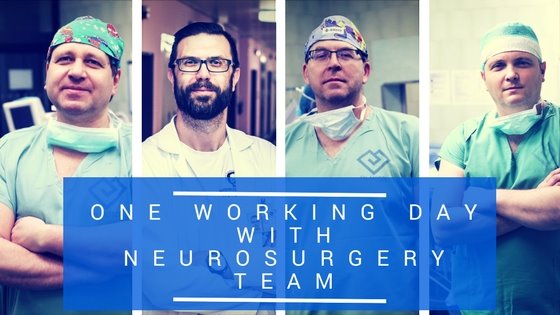
Your personality doesn't determine the specialty you will be successful in. Everybody's approach towards patients, the organization of the work and the way how he or she engages in the team with colleagues in the specialized center and other health care professionals differ. A lot. Everyone has own strengths and weaknesses and in a strong team, you complete one another. Neurosurgery team at the University Hospital in Motol is one of the strong, united and effective teams and while being in their company you understand that it's a privilege to be a part of it even for a day.
It is a pure joy to see the Neurosurgery Team working together in the OR and in the ward. They work with such an ease with their graceful and mindful movements that you could catch yourself thinking "I want to be one of them." But in the next second, you realize how much hard work and experience lies beneath. It is definitely one of the most challenging professions dealing with the greatest mystery in our body - as neurosurgeon Martin Bláha, one of our mentors, says: "We specialize in treating the most complex device in the universe – the human brain. And unlike other organs, we know very little about it."
Humor as a coping skill in the team
What bounds the neurosurgery team in the part for adult patients together is their primary focus on patients' health and the great sense of humor. It doesn't matter whether you are around them early in the morning when the shifts change or late in the evening when the visiting rush hours pass. They joke around and even if teasing each other a bit, they really do care about one another, their families and the life outside of the hospital walls. You can hear it from the small talk conversations they exchange and you can also feel it in the more difficult or stressful moments. When you speak one on one with various members of the team, they talk about their colleagues with respect and praise them spontaneously.
This feeling supports the words of a nurse Jana, whom I've met first once joining the departmental team in the afternoon: "I am looking forward every day to come to the workplace. One becomes addicted to it. There are days it's hard but I cannot imagine that I would do another job. We have really great people around." Medical orderly, Radek, replies to me on the subject of what helps him to cope with the most difficult moments: "No matter what happens, you need to stay professional when things get tough or personal at work. You can't afford to lose nerve in this kind of job. It is stressful and not many people can deal with the emotions. But I like it. My favorite moments are when I see the progress of patients, even the little things like when they start to talk or smile again."
It's almost 5 pm and the room gets crowded all of a sudden. Neurosurgeons are coming back from the ORs and outpatient departments. Visibly tired after the shift and long surgeries. Exchanging opinions and consulting their patients. Everybody asks how their case went. Making plans for tomorrow, too. Humor seems to be the best relaxant and the right medicine for energetic boost. Doctor Jiří Steindler pops out to say hello, we speak about the CHP Program students who shadowed their team in the last weeks. He checks with doctor Martin a GCS monitoring of one of the patients to decide what actions need to be taken. I recall quickly what Martin taught us about the GCS score in the last tutorial. Right before leaving doctor Jiří points out he might be riding his bike back home and makes a reservation for one of the ward beds nearby the window with a good view. Just in case ![]() I cannot help to burst out laughing.
I cannot help to burst out laughing.
Late afternoon at the Neurosurgery ICU with patients, their families, and papers
During the constant ringing of the departmental phone, I greet another neurosurgeon Aleš Vlasák and we go to visit all of the patients in the Intensive Care Unit. Some of them are here because of an accident at work, traumatic aneurysm, severe epileptic seizure, brain tumor resection, spinal surgery of the lower back or other causes. He is making time to check them all together with the ICU senior nurse Dana, they talk to the family members who visit their relatives in the afternoons. I wonder how both of them can remember all the details about each case.
One of the patients, an older man who fell down from stairs, is praising the work of nurses immediately once we enter the room. Aleš replies to his sons when he will be transferred to the standard ward and goes to check another patient, a woman after the resection of benign brain tumor, there is a leakage of the cerebrospinal fluid in the wound, common postoperative complication, causing her headaches and nausea. Aleš checks the wound and decides for the puncture, one of the nurses is assisting him with the procedure and the patient feels relieved a few moments after. She talks to us about her job, she works 16 years in one shop. I admire how tremendously brave she is.
It's half past six and there is no acute case at the moment, nurses are working on the patients' documentation every now and then. Generally, the administrative burden in healthcare is immense. While watching the staff completing it, I doubt its original sense to improve things. The effort nurses, doctors and other professionals put into it definitely exceeds the time they should be spending doing paperwork. Although nobody from the staff is complaining about it, it is one of the sides of the profession you can barely imagine while contemplating your career in the field.
When the documentation is done, Aleš offers me a coffee and sips from his Batman cup while speaking about his professional experiences abroad, especially the one in Kijabe, Nairobi, where he worked in the Neurosurgery department of the BethanyKids Hospital. We speak about his patients in the subspecialty of cranial base surgery and I cross my fingers to be able to see the teamwork effort of the Motol Hospital professionals encompassing multiple specialties as maxillofacial surgery, plastic surgery, otolaryngology, and neurosurgery, too. Leaving the neurosurgery center late in the evening and looking forward to another day.
Morning rounds
My favorite time in the hospital area when the fatigue is slowly replaced by adrenalin in the air – morning rush at 6 am. I arrive at the neurosurgery center again exchanging greetings with the staff, patients seem to have a good night. Nurses in the ICU and in the ward are already on guard. Next to all of their never ending list of duties - so the day could run smoothly according to the plan - they prepare a coffee kettle for their colleagues. One of them is offering me a mug and her face is a bit swollen, she has a severe toothache. She'll have a rough day ahead for sure.
Aleš picks me up to have an early round and check the patients. The standard ward patients are doing very well. Most of them are thankful, feeling better and without pain. The plans for patients to be released are made which means that another portion of administration is on the table. The head of the department, doctor Jiří Preis is on the workplace way before he needs to be making sure everything's alright. He reconfirms with all of the colleagues the plans for the operations. My student Sam arrives and she begins to be a part of the team immediately.
OR time: Localization of an epileptic activity by implantation of brain electrodes
A young woman with a head shaved already is waiting for a surgery. One of the staff members washed her hair again in the morning. Doctors Martin and Robert invite us with Sam to see how the frame of the skull mounted aiming device is fixed to the head of the patients by 4 screws. They are doing it as gently as they can so the patient feels only pressure thanks to the local anesthesia. The patient suffers from epilepsy and to localize the focal epileptic lesion, she needs to undergo the implantation of EEG brain electrodes. She has without a doubt a true grit, smiling despite the weight and pressure of the frame on her head. After a few minutes we are about to leave to the Radiology and Imaging Methods Specialized Center for a CT scan of her head, in the meantime neurosurgeon Robert Leško, explains us the whole procedure.
Once we arrive at the center, he checks how the patient feels explaining to her what will happen next again. Origins of this method date back to 1908 when a Cartesian 3D coordinate system was used by physicians Horsley and Clarke in 1908. Together with the use of MRI, deeper areas of brain are reached with a greater precision and accuracy such as in this case where more than 10 screws with electrodes during one and half hour are implanted to the patient' head to monitor her for a week and to pinpoint and localize the origin of the epileptic seizure activity.
The preparation of the surgery requires a big amount of concentration from the whole team including neurologists, neurosurgeon Robert, and the biomedical engineer. We are together with them watching their work with neuronavigation while merging the MRI and new CT scan and calculating and exporting the right coordinates for the best trajectory of the soon to be implanted electrodes. The patient is being transferred to the OR so the anesthesiology team can begin to work. And we follow. In the OR, Robert is the boss as he is the one in charge to implant the electrodes, neurologists and the biomedical engineer are preparing the stereotactic frame according to each of the coordinates.
Scrub nurse hands the instruments to Robert according to his signals and instructions and while shadowing them working together, we talk with Sam about the different personalities of the neurosurgeons in relation to their working habits and preferences. It's amazing how much we can learn by "just" watching the whole team working. I am very nicely surprised by the extent of Samantha's insight. It's her 8th day with the team. Robert and his colleagues are almost done with the screws and now the time to insert the electrodes has come. The surgery was successful and one of the most experienced anesthesiologists, doctor Radim Kukla, is gently waking the patient while monitoring her vital functions constantly. All of the members of the staff are following their duties, counting the instruments, getting the OR prepared for another surgery at 11 am while Robert and colleagues write the necessary reports.
Technological advancements in everyday Neurosurgery
The new equipment of vector vision neuronavigation system is getting ready for the next case of a small cerebral lesion biopsy of a male patient. Thanks to the system the team can obtain the real-time responses in terms of surgery plan and the location of the instruments used. The surgery target is localized with a breathtaking accuracy. The head of the department and another specialist come to see Robert's work just in the moment when the patient is positioned in the Mayfield triad head clamp.
After the small cut, Robert drills a burr hole in the patient's skull and uses the navigated disposable biopsy needle to get the tissue samples for the biopsy evaluation. These are being transferred to the pathology lab within the hospital to obtain the life-changing results for the patient as soon as possible. When the procedure is done, I have a few moments to talk with Robert about his work and the surgeries we have seen today before another one starts. Robert is explaining to me how much the technological advancements have influenced the whole specialty. "I haven't expected I would be enjoying the work with technical equipment to this extent and I see a huge potential and benefits in it for our patients. What used to be solved previously by a big intervention is today dealt with in a minimally invasive way. And that's awesome." He ends up smiling.
I am nodding realizing how awesome these nearly 24 hours with neurosurgery team in the department for adults of the University Hospital in Motol have been. Many thanks for giving to the young prospective students the chance to see how great work you all do on a daily basis and how the work of neurosurgeons and other healthcare professionals looks like in a top notch hospital. Special thanks to all the mentors of the Czech Hospital Placements Program mentioned in the article. I am genuinely grateful for your professionalism and warm hearted approach to all of us. Barbora, CHP Program Manager

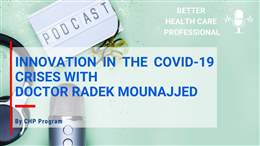

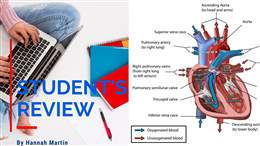



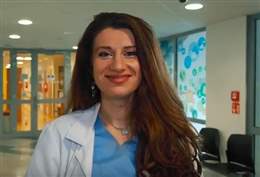

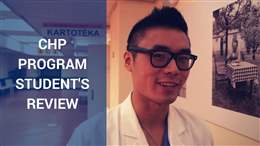
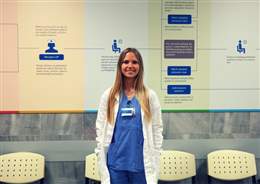

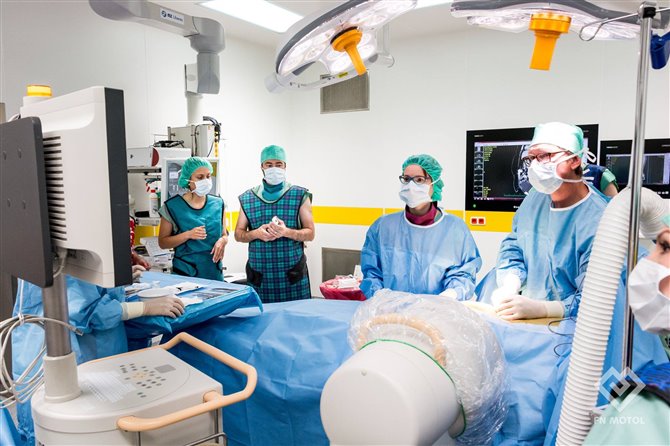


Categories
Behind the Scenes of the University Hospital in Motol
Being a Healthcare Student
Best Adventures While Travelling
Discover the Medical Specialties
Inspiration: Practical Experience of Healthcare Professionals
Obsolete vs. Visionary
The Better Health Care Professional Podcast
Tips and Tricks for Your Successful Career
Top News in Healthcare
Travels in COVID-era